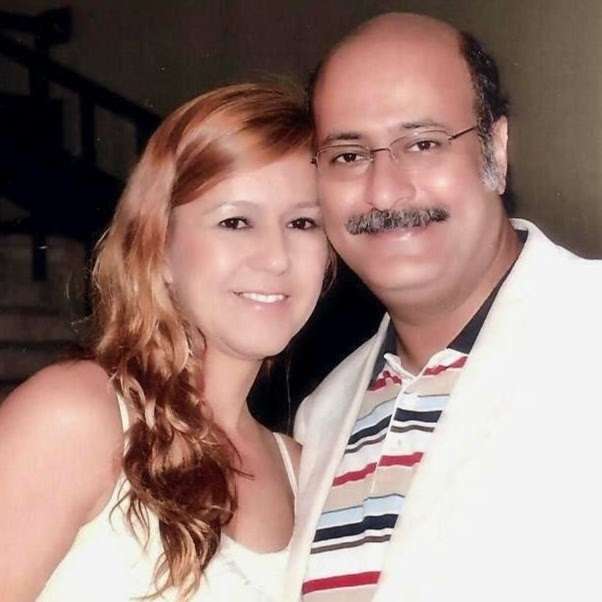
Russell Crowe is one of the most acclaimed actors of his generation, with a diverse and impressive career spanning over three decades. He has starred in some of the most iconic and influential films of all time, winning numerous awards and accolades along the way. But how did he rise from his humble beginnings in New Zealand and Australia to become a Hollywood superstar? And what is the mystery behind his recent transition to supporting roles? In this article, we will explore Russell Crowe's journey from his early life and background, to his breakthrough and biggest roles, to his public and critical reception, to his speculations and future projects. We will also delve into his personal life and controversies, his collaborations and influences, and his interests and hobbies. Join us as we uncover the secrets of Russell Crowe's stardom.
The Early Years and Rise to Stardom
Russell Crowe was born on April 7, 1964, in Wellington, New Zealand. His parents, John and Jocelyn, were both film set caterers, and he spent much of his childhood traveling with them around different film locations. He developed an interest in acting at a young age, and appeared in his first film, "The Crossing," at the age of six. He also performed in various musicals and plays in school and local theaters.
When he was 14, he moved with his family to Sydney, Australia, where he attended Sydney Boys High School. He dropped out of school at 16, and pursued a career in acting and music. He had several roles in Australian and New Zealand television shows, such as "Neighbours," "Police Rescue," and "The Flying Doctors." He also formed a rock band called Roman Antix, later renamed 30 Odd Foot of Grunts.
His breakthrough role came in 1992, when he starred as a neo-Nazi skinhead in the Australian film "Romper Stomper." The film was controversial but critically acclaimed, and Crowe won the Australian Film Institute Award for Best Actor. His performance caught the attention of Hollywood agents and directors, who offered him roles in various films.
He made his Hollywood debut in 1995, playing a virtual reality serial killer in "Virtuosity," opposite Denzel Washington. He then appeared in "The Quick and the Dead," "Rough Magic," and "No Way Back." His first major recognition in the international film scene came in 1997, when he played Detective Wendell "Bud" White in the neo-noir crime film "L.A. Confidential." The film was a critical and commercial success, earning nine Academy Award nominations, including one for Crowe for Best Supporting Actor.
His Biggest Roles and Achievements
After "L.A. Confidential," Crowe's career skyrocketed to new heights. He starred in some of the most successful and acclaimed films of the late 1990s and early 2000s, working with some of the most renowned actors and directors in the industry.
In 2000, he played Maximus Decimus Meridius, a Roman general turned gladiator, in Ridley Scott's epic historical drama "Gladiator." The film was a massive hit, grossing over $460 million worldwide and winning five Academy Awards, including Best Picture and Best Actor for Crowe. His performance as Maximus is widely regarded as one of the greatest in film history, and cemented his status as a leading man.
In 2001, he portrayed John Nash, a brilliant but troubled mathematician who suffers from schizophrenia, in Ron Howard's biographical drama "A Beautiful Mind." The film was another critical and commercial success, earning eight Academy Award nominations and winning four, including Best Picture and Best Director. Crowe received his third consecutive Academy Award nomination for Best Actor for his role as Nash.
Other notable roles and achievements during this period include playing Jeffrey Wigand, a whistleblower who exposes the tobacco industry's lies about nicotine addiction, in Michael Mann's "The Insider" (1999), which earned him another Academy Award nomination for Best Actor; playing Captain Jack Aubrey, a naval officer during the Napoleonic Wars, in Peter Weir's "Master and Commander: The Far Side of the World" (2003), which earned him a Golden Globe nomination for Best Actor; playing Jim Braddock, a boxer who makes a comeback during the Great Depression, in Ron Howard's "Cinderella Man" (2005), which earned him another Golden Globe nomination for Best Actor; and playing Ben Wade, a charismatic outlaw who is captured by a struggling rancher, in James Mangold's "3:10 to Yuma" (2007), which earned him a Screen Actors Guild nomination for Best Actor.
The Mystery of His Starring in Supporting Roles Now
In recent years, Crowe has made a surprising transition to supporting roles in various films. Some of the possible reasons for this shift are his artistic choices, his personal preferences, or his age and image. He has said in interviews that he is not interested in chasing fame or money, but rather in finding challenging and meaningful roles that suit his skills and passions. He has also said that he enjoys working with younger and emerging actors and directors, and that he is open to exploring different genres and themes.
Some of the examples of his recent supporting roles are playing Jor-El, the biological father of Superman, in Zack Snyder's "Man of Steel" (2013); playing Noah, the biblical patriarch who builds an ark to save his family and animals from a great flood, in Darren Aronofsky's "Noah" (2014); playing Dr. Henry Jekyll, the leader of a secret organization that hunts monsters, in Alex Kurtzman's "The Mummy" (2017); playing Roger Ailes, the founder and former CEO of Fox News, who was accused of sexual harassment by several women, in Jay Roach's "Bombshell" (2019); and playing Unhinged (2020), a psychological thriller about a man who terrorizes a woman and her son after a road rage incident.
These roles have had varying impacts on his career. Some have been praised by critics and audiences, such as his portrayal of Ailes, which earned him a Golden Globe nomination for Best Actor in a Miniseries or Television Film. Others have been panned or ignored, such as his role in "The Mummy," which was a box office flop and received negative reviews. Some have been controversial or divisive, such as his role in "Noah," which sparked religious debates and protests.
Public and Critical Reception
The response of fans and critics to Crowe's transition to supporting roles has been mixed. Some have applauded his willingness to take on different and challenging roles, and to support younger and diverse talents. They have also appreciated his versatility and range as an actor, and his ability to deliver powerful performances in any genre or theme. They have argued that he is still one of the best actors of his generation, and that he deserves more recognition and respect for his work.
Others have expressed disappointment or confusion over his career choices, and have questioned his relevance and appeal in the current film industry. They have also criticized his performance or appearance in some of his recent roles, and have accused him of losing his edge or charisma as an actor. They have argued that he is wasting his potential and talent by taking on minor or mediocre roles, and that he should return to leading roles that showcase his skills and star power.
Crowe himself has addressed the change in his career trajectory in several statements and interviews. He has said that he is not concerned about what others think of him or his roles, but rather about what he thinks of himself and his roles. He has said that he is happy with his career path, and that he is proud of his work. He has also said that he is not interested in repeating himself or playing the same type of roles over and over again, but rather in exploring new possibilities and opportunities as an actor.
Speculations and Future Projects
Speculations about Crowe's career direction and potential return to leading roles are rife among fans and critics. Some have speculated that he is preparing for a comeback or a reinvention as an actor, and that he will surprise everyone with a stunning performance or a blockbuster film. Others have speculated that he is winding down or retiring from acting, and that he will focus on other aspects of his life or career.
As for his upcoming projects and collaborations, there are several to look forward to. He is set to star in "The Georgetown Project," a horror film directed by Joshua John Miller and M.A. Fortin; "American Son," a crime thriller directed by Andrew Onwubolu; "Rothko," a biographical drama directed by Sam Taylor-Johnson; "True History of the Kelly Gang," a western film directed by Justin Kurzel; "The Loudest Voice," a miniseries about Roger Ailes directed by Kari Skogland; and "Road to Boston," a sports drama directed by Peter Farrelly.
Fans' hopes and expectations for Crowe's future in the film industry are high. They hope that he will continue to entertain and inspire them with his performances, whether as a leading or supporting actor. They also hope that he will receive more recognition and respect for his contributions to cinema, and that he will achieve his personal and professional goals. They expect that he will surprise and delight them with his choices and projects, and that he will remain one of the most influential and talented actors of his time.
Conclusion
Russell Crowe is a remarkable actor who has had a remarkable career. From his humble beginnings in New Zealand and Australia, to his rise to stardom in Hollywood, to his transition to supporting roles in recent years, he has shown his passion, skill, and diversity as an actor. He has starred in some of the most memorable and acclaimed films of all time, winning numerous awards and accolades along the way. He has also faced some challenges and controversies in his personal and professional life, but he has overcome them with grace and dignity. He has also supported and collaborated with other actors and directors, and explored different genres and themes in his roles. He has intrigued and fascinated fans and critics with his career choices, leaving them curious about what lies ahead for him. Russell Crowe is a legend in the film industry, and his legacy as an actor will endure for generations to come.
